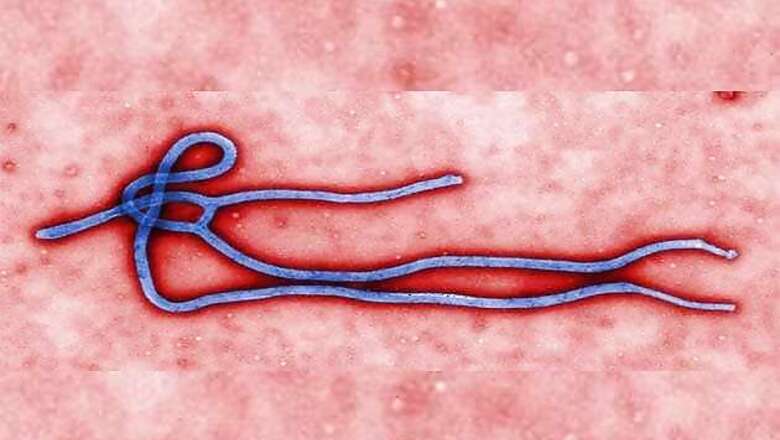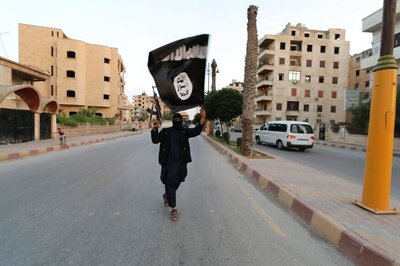
views
Washington: Warning that Americans are losing faith in their government's ability to stop Ebola, Republican lawmakers on Thursday pressed for a ban on travel to the US from the West African outbreak zone. The White House said other measures are more effective.
The administration spent the day trying anew to tamp down fear as the pool of Americans being monitored for symptoms expanded from Texas to Ohio. President Barack Obama said he might appoint a single official to lead the nation's efforts against the deadly disease.
Health officials in Texas took a tougher stance on monitoring the dozens of health care workers who had contact with the man who died of Ebola in Dallas, asking them to sign legal documents agreeing to stay home under threat of sanctions if they ventured out in public places. Earlier, officials had requested the 75 workers to self-monitor for symptoms of infection after two nurses were diagnosed with the virus.
One of them, Nina Pham, was moved Thursday from the Texas hospital to a specialized federal facility in Maryland. The other nurse, Amber Vinson, has been transferred to an Atlanta hospital that has one of only four bio-containment units in the US.
In a brief video provided by Texas Health Presbyterian Hospital in Dallas, Pham smiles as she sits up in a hospital bed and chats briefly with an attendant and her treating physician, Dr. Gary Weinstein, who are clad in protective gear.
Asked if she needs anything, Pham replies, "I don't think so." When tears come to her eyes, she's handed a tissue. She wipes her eyes and says, "I love you guys."
While a contentious congressional hearing focused on the three cases of Ebola diagnosed within the US, the World Health Organization said the outbreak in West Africa was on pace to top 4,500 deaths by the end of the week.
Obama authorized a call-up of reserve and National Guard troops in case they are needed. His executive order would allow more forces than the up-to 4,000 already planned to be sent to West Africa, and for longer periods of time.
The president met into the evening with top aides and health officials at the White House, declaring afterward that he had no "philosophical objection" to imposing a travel ban on West Africa but had been told by health and security experts that it would be less effective than measures already in place - and perhaps would be counterproductive.
He said a ban could result in people trying to hide where they were coming from and thus becoming less likely to be screened.
He said it may be appropriate to appoint an additional person to lead the anti-Ebola effort in the US, a response to calls that he name an Ebola "czar."
Health authorities insisted anew there is virtually no risk right now to Americans beyond medical workers involved in treating Ebola cases or people who recently traveled to West Africa. Yet people across the country were quick to take precautions.
Individual schools in Akron, Ohio, suburban Cleveland and Belton, Texas, were closed for disinfecting because of fears that students or staff might have had tenuous exposure to Vinson, who flew across the Midwest the day before she was diagnosed with Ebola. Akron's school superintendent, David James, said the move would calm fears in the community.
Officials in Texas expanded their airline investigation to include passengers on a flight last Friday from Dallas to Cleveland that carried Vinson. Passengers on the return flight on Monday already were being contacted.
In Washington, federal health officials who were called to Capitol Hill for a special hearing emphasized the importance of stopping the virus in Liberia, Sierra Leone and Guinea to protect Americans and the rest of the world from its spread.
"You're right, it needs to be solved in Africa. But until it is, we should not be allowing these folks in, period," replied Rep. Fred Upton, R-Mich. He called for a ban on the 100 to 150 people who fly into the US each day from the three nations at the heart of the outbreak.
"People's lives are at stake, and the response so far has been unacceptable," declared Upton, chairman of the Energy and Commerce Committee. A handful of congressional Democrats also have endorsed the travel ban that's mainly been pushed by Republicans.
At the White House, spokesman Josh Earnest said the US was already taking the necessary steps to protect the public, because passengers are screened as they depart West Africa and most are checked for fever again when they arrive at a US airport.
Earnest said the chances for a widespread outbreak in the US remain "exceedingly low," despite shortcomings in the government's initial responses. Health officials said the same.
Obama, who directed his administration to respond more aggressively to the virus at home, made calls about Ebola to foreign heads of state as well as congressional leaders at home. He also called Gov. John Kasich of Ohio, where the CDC is helping to track people who may have been exposed when the Dallas nurse traveled to the Akron area to visit family.
"The president said whatever you need, we want to help," said Rob Nichols, spokesman for the Republican governor.
Frieden told lawmakers that investigators still don't know how two Dallas nurses caught Ebola while caring for a Liberian man who died at their hospital. Thomas Eric Duncan was the first person diagnosed with Ebola in the United States since the West African outbreak began in March.
To protect other medical workers while the investigation continues, Frieden said, the CDC is focusing on improving safety procedures.




















Comments
0 comment